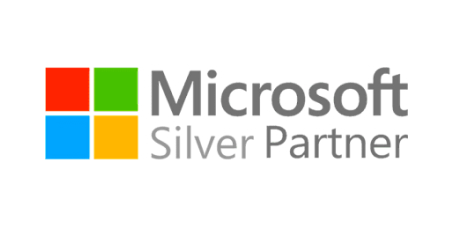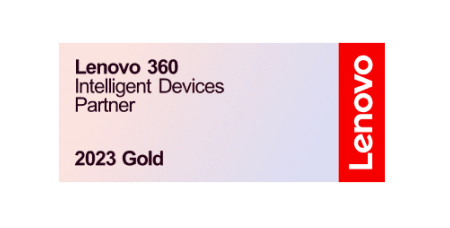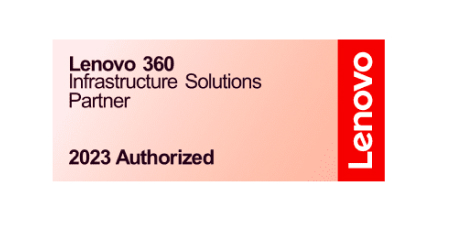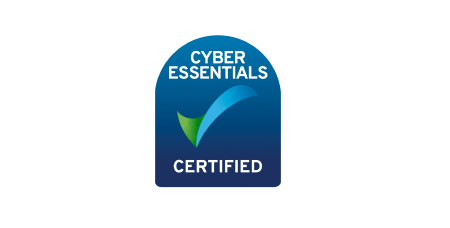Making IT Amazing
Why do we have the paradox that instead of improving agility and cohesion, ‘enabling’ more flexible working patterns, the opposite can be the case with IT investment?
Instead of better information flow, for example, access to relevant data is more complex, while any expected reduction in the operational costs of the business fail to materialise.
The implications are increased vulnerability, as well as an impact on effectiveness, an increased difficulty in remaining competitive and being on the same wavelength as their customers. For a report being researched and written by DECISION magazine for HB Tech, companies consider what they need to address if IT is to deliver key objectives.
This is one of the papers to be published in the report.

Ross Negus
Managing Director
Southampton Freight Services
WE’RE A FIFTH of the way through the twenty-first century and still flying cars are years away from becoming a reality. Where science-fiction may have been overly optimistic in its predictions, scientists too have had cause to be a little red faced about their pessimism. “Heavier-than-air flying machines are impossible,” said eminent physicist Lord Kelvin in 1895, only to be proven wrong just eight years later.
Similarly ten years before Neil Armstrong took his infamous small step, the U.S. Postmaster General proposed that rockets would be employed for mail delivery before they’d ever be used to get Man on the moon. Although these modifications are yet to me made – and we still haven’t seen swarms of drones dropping our mail-order packages to the front door – this is not to say technology hasn’t fundamentally changed the process of sending goods from A to B.
“My brother and I have been reminiscing about this recently,” says Ross Negus, “Twenty-three years ago when the business started, we wondered if we would even have a telex machine! I can remember when basic mobiles came into mainstream. Then came the smartphones and emails on your device, and suddenly you’re reachable at home. One of our agents in Norway had an HTC mobile phone with one of those ‘qwerty’ keypads, and I remember being amazed!”
As managing director of Southampton Freight Services, Negus recognises that the work-life balance is a key consideration when it comes to technology. “Freight forwarding has always been a twenty-four/seven industry, but now with IT it’s really a twenty-four/seven industry. I regularly receive out-of-hours WhatsApp messages by clients, partners and colleagues, and I’ve even had a client contact me on Facebook Messenger before now.”
When it comes to IT systems in the workplace, however, Negus believes it’s important to find the positive impacts of technology, embracing it where it can help to fill in the gaps. “We’re having meetings with an IT company who designs software platforms, to look at our options for creating a central hub with all of the services we need.”
He explains the idea is to have their freight, courier and accounting software running alongside their customer relationship management (CRM) system. “Off-the-shelf CRM software is very expensive and basically it does things we don’t need it to. We want to design a simple service which does what we need and does it well.” But as engineers of any kind will tell you, simple is hard.
“I just wanted something which gives me more control, which gives me the basic information about our clients – giving us all the shipment data in one place from different platforms and holding info on birthdays for instance, but it’s been very hard to find.” He says a user dashboard for each department on one platform would be the dream. “We want to have something that our teams will buy into, which has cool graphics about where we’re delivering to, and reflects the atmosphere of the company where people can still have banter between departments.
On the CRM side the biggest challenge is updating information. At the moment, we’re using a lot of different systems, around five or six individual systems which we have to update independently.” He has seen first-hand how costly technological frustration can be to staff. “We have workers here who’ve left our larger competitors as a direct result having to run between several different systems.”
The blueprint for their new customer relationship management system is £10,000. “If they said it was £100,000 to design and build, and it did everything we wanted, I’d be willing to go for it. I know it would pay us back over time.” But he quickly adds the timing of introducing any new technology into the workplace is critical.
“When we introduced Datafreight 2, a new upgrade, we tested it for a year in every department to make sure it ran without fault. When we launched it, it functioned from day one and there haven’t been any complications because we were prepared.”
Then there’s Parcelcube, a machine which provides the weight, dimensions and photos of a package. “At first glance it looks like any other set of weighing scales,’ says Negus, “but it has various sensors which automatically record the key details of a package onto our system. We receive thousands upon thousands of small packages which up until now required booking in manually.
“This piece of kit has already saved us hours of manual work; it used to take a good two minutes per package in the warehouse, now it takes around twenty seconds. It was a no brainer as an investment and worth the £9000 outlay.”
For those warehouse workers who are set in their ways, Negus describes how they must be shown how technology benefits their role. “As managing director I have to show my staff this is going to be advantageous. They might have been doing their job for years and will understandably be sceptical of something which claims to increase efficiency. So I need to make our new systems look as easy and as glossy as possible to get their buy in.”
Negus says using technology to do jobs which take a little weight off peoples shoulders facilitates their customers too. “A lot of the jobs we do are low margin, so it makes business sense to automate as many processes as you can. To be an effective business, the attention has to be on the customer, so utilising IT is about letting computers do more of the leg work.”
Honesty with the customer, on the other hand, is not always honoured by this industry. In a world where it’s said nothing can be guaranteed except death and taxes, Negus believes false promises are creeping in. “Guaranteed delivery is a massive issue in freight forwarding, where the biggest delivery companies say they can ‘guarantee’ an item will get to its destination by a certain time.
“But in reality, nothing can be guaranteed. It has cost us jobs, because honestly, if an aircraft, ship or truck runs into a technical issue, or bad weather, ‘guaranteed delivery’ is not worth the paper is written on,” admits Negus.
“Instead we stick to our word, which is that we’ll do all we can for our customer, and react to any problem quickly and decisively. By showing the customer you’re consistently professional and invest in the IT and processes which help look after them, you’re more likely to retain their business in the long run.”
But in a digital world where all content is ultimately intangible, what happens when the virtual information disappears? “Disaster recovery is very much on the agenda now,” he says. We’ve suffered outages before and lost access to data, which can be crippling. When we moved to this new facility in 2015, IT and digital recovery was at the top of our agenda. We have a 100mb leased line with a four-hour fault recovery, offsite data replication with mirrored servers and onsite backup systems. Our emails are on the cloud which means we can access via mobile tech or webmail, so we have the ability to continue to operate under the most extreme of circumstances.”
Seeking solutions to such challenges has required investment. “Ten years ago we were spending £10,000 per year for all of our IT support. Now we’re spending closer to £35,000 on hardware and remote support, £12,000 on freight software and £3000-£4000 on our courier software. Our annual costs have increased almost five-fold to run our systems. I also update all of the computers in the office every three to five years to try to be ahead of the game,” he says.
“I’m willing to invest in IT if it works. Until seven or eight years ago, we used a whiteboard in our old office which contained all the information for our deliveries. It was the system we’d used since day one, because I never knew any other way to do it.” A random conversation at an exhibition prompted a change. “Someone asked if I’d heard of a system called Webfleet, a web-based vehicle tracking and fleet management software.” This system is now used extensively in the company and Negus considers this software has revolutionised the market.
Another revelation came with the discovery of Microsoft Teams. “When we took on our third warehouse, we wanted to convert to more of a systems process as opposed to the chaotic approach it had felt like before. We have three sixty-five inch television screens across our warehouses where we’re introducing Microsoft Teams to display spreadsheets providing daily instructions that everyone can access. It’s a fairly cheap way of doing things as well; we’re already paying for the Microsoft subscription, so why not use it? As a company it’s the little wins here and there that count.”
“Interestingly we did all this just one week before the first Covid-19 lockdown. It was a major coup for the business, as we split the office teams fifty/fifty, home/office, and this enabled us to work fluently. When those dealing with operations have to interact with your warehouse on a regular basis, but suddenly half are working from home, you need technology to keep them together. It doesn’t necessarily need to be super smart; it just needs to work.”
Researched and published by
DECISION magazine
www.decisionmagazine.co.uk
At HB Tech we are a friendly and experienced team who are proud to deliver exceptional IT Support in Hampshire. We follow our values every day to provide the best client experience and strive for excellence in everything we do.
Providing IT services and solutions, we are proud to support over 70 businesses and charities across Hampshire and Dorset.
If you would like to know more about how we can support you with your IT please visit; Support
Don’t let bad technology ruin your day. HB Tech provides IT support in Southampton to ensure your business stays online when it matters.
Does your business need us? Contact us using the form below or call now to talk to one of our team immediately.








